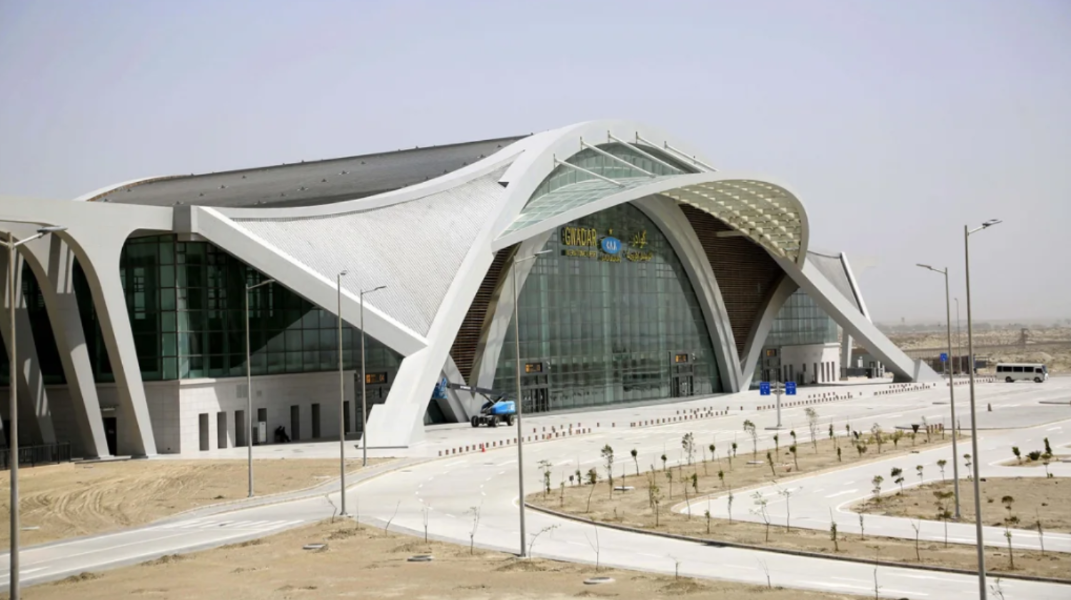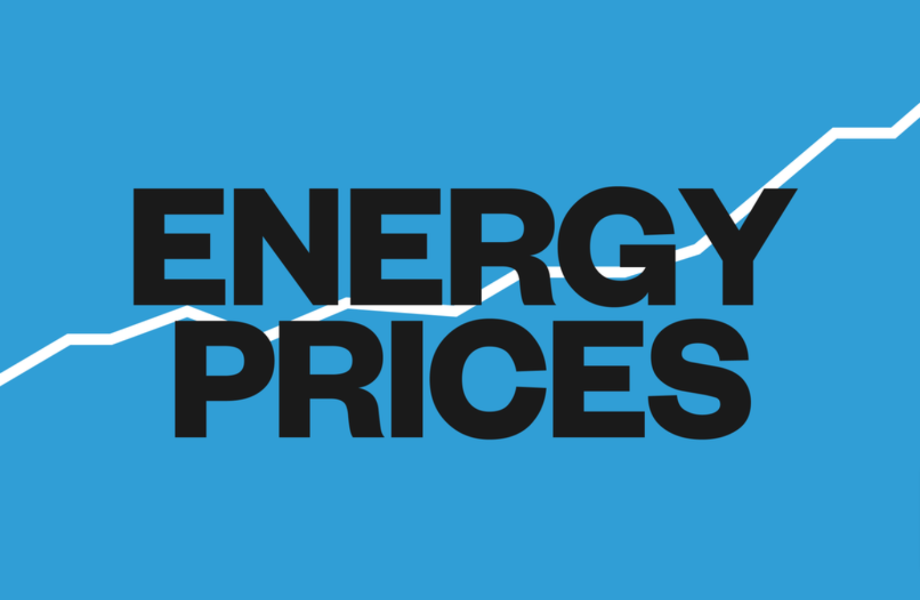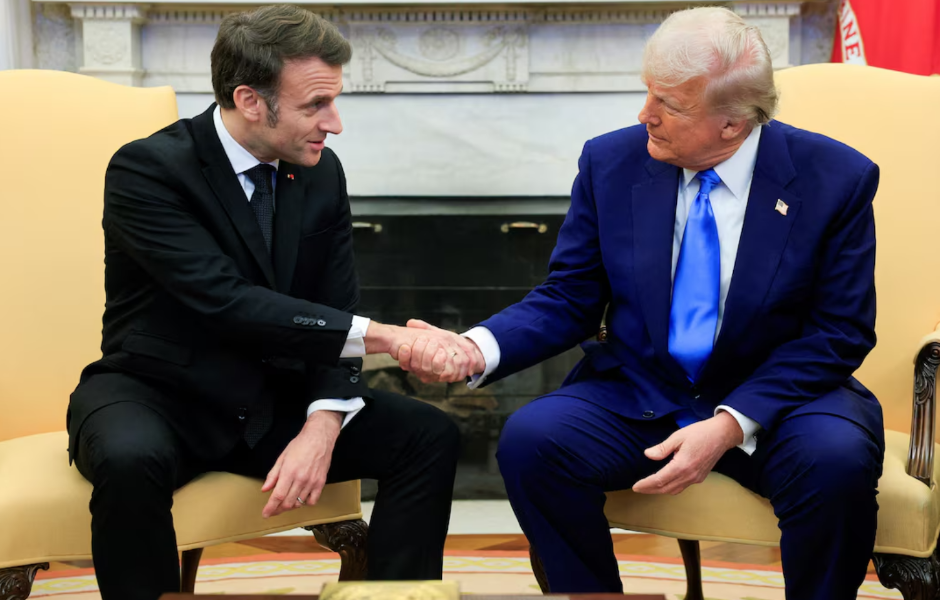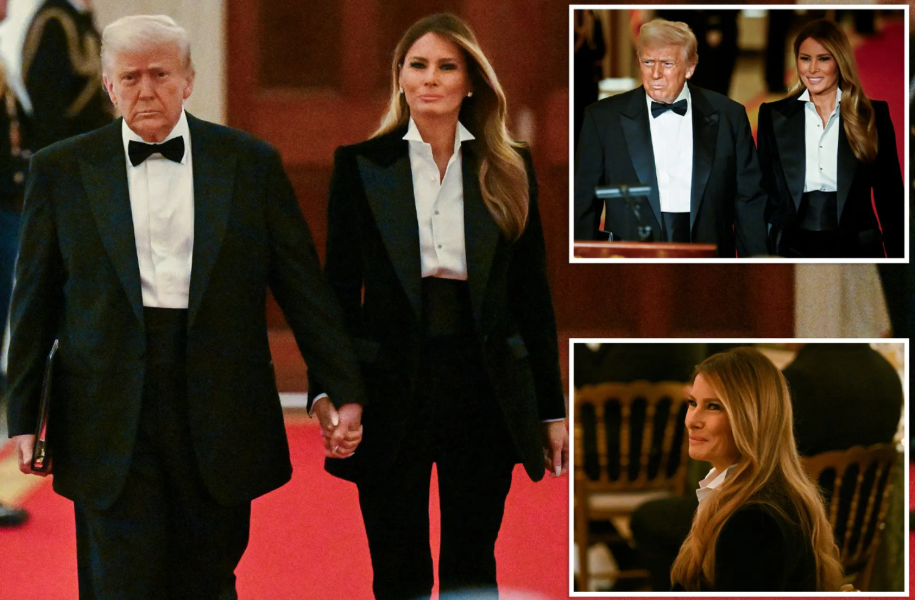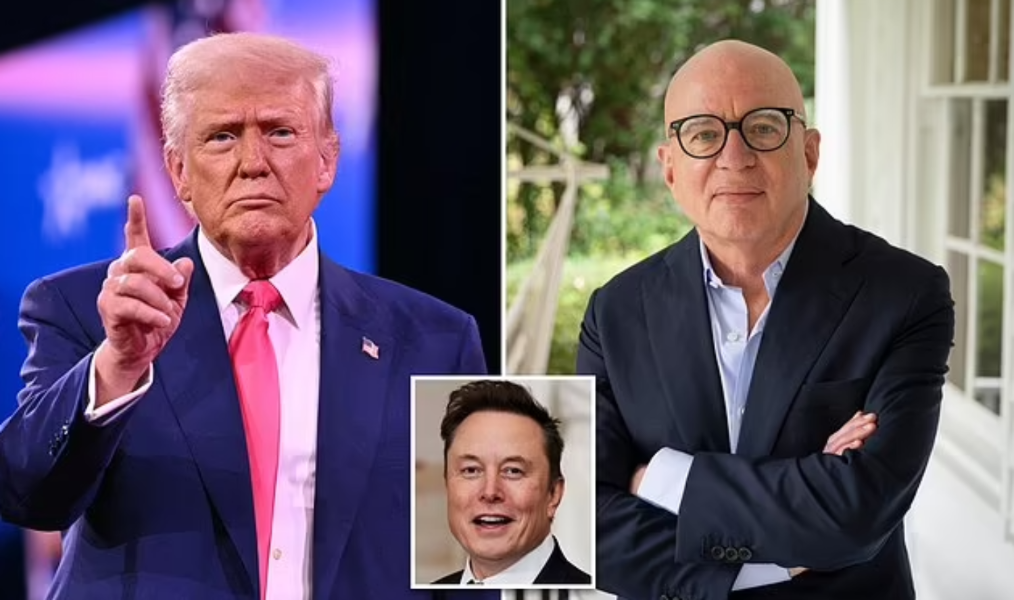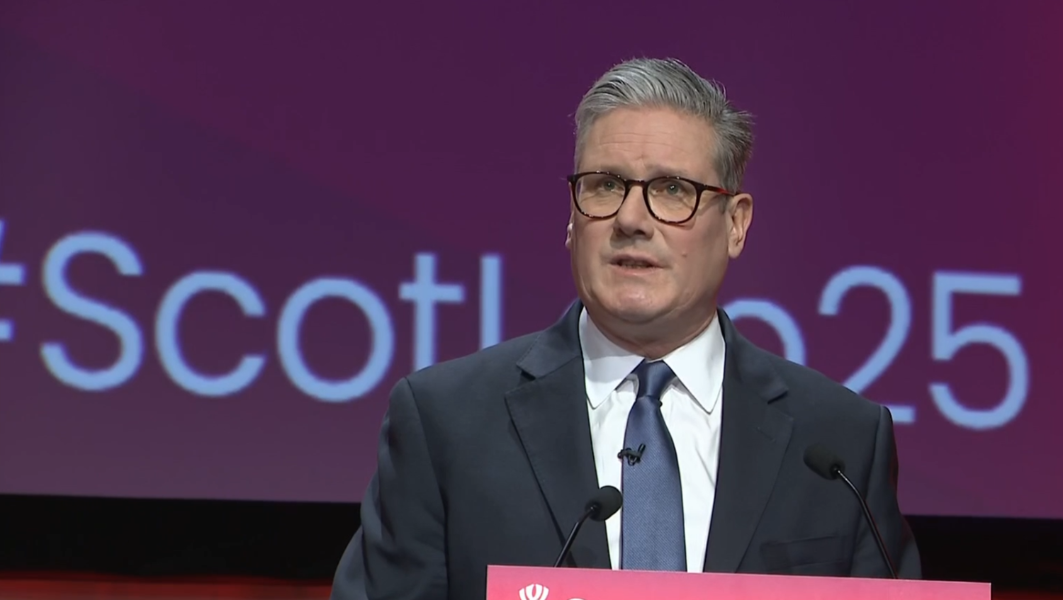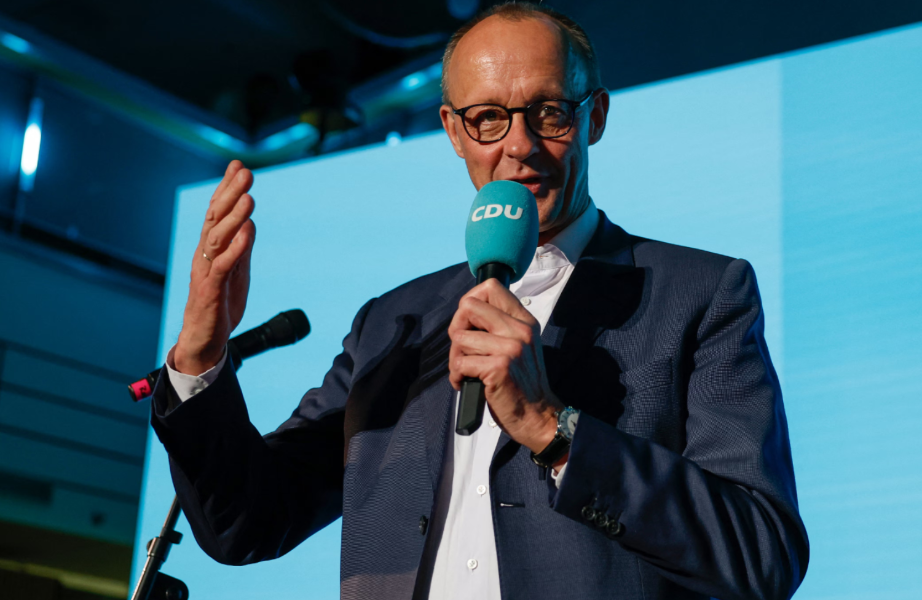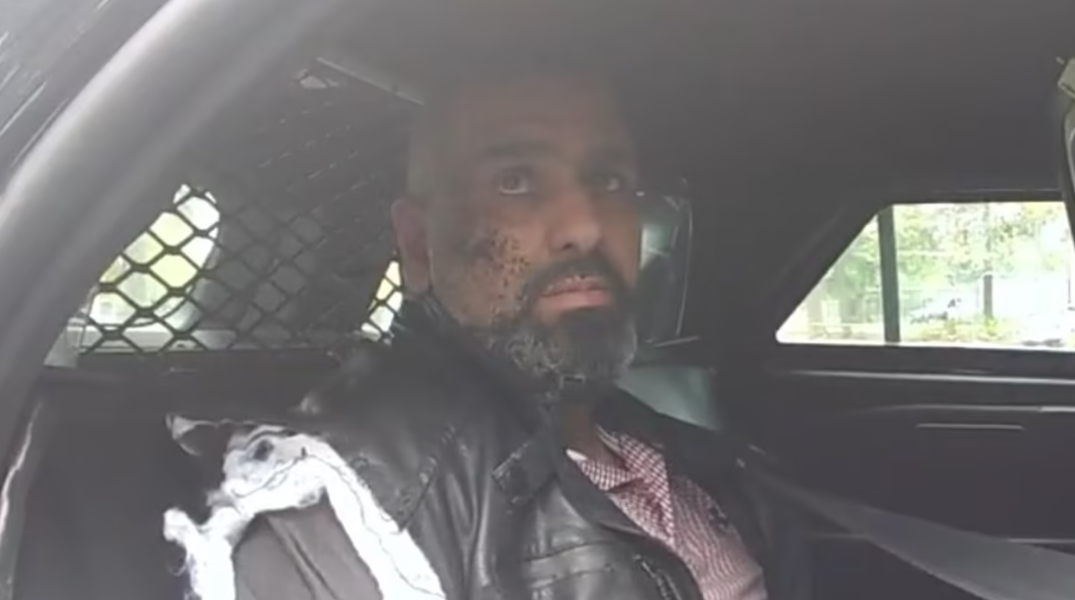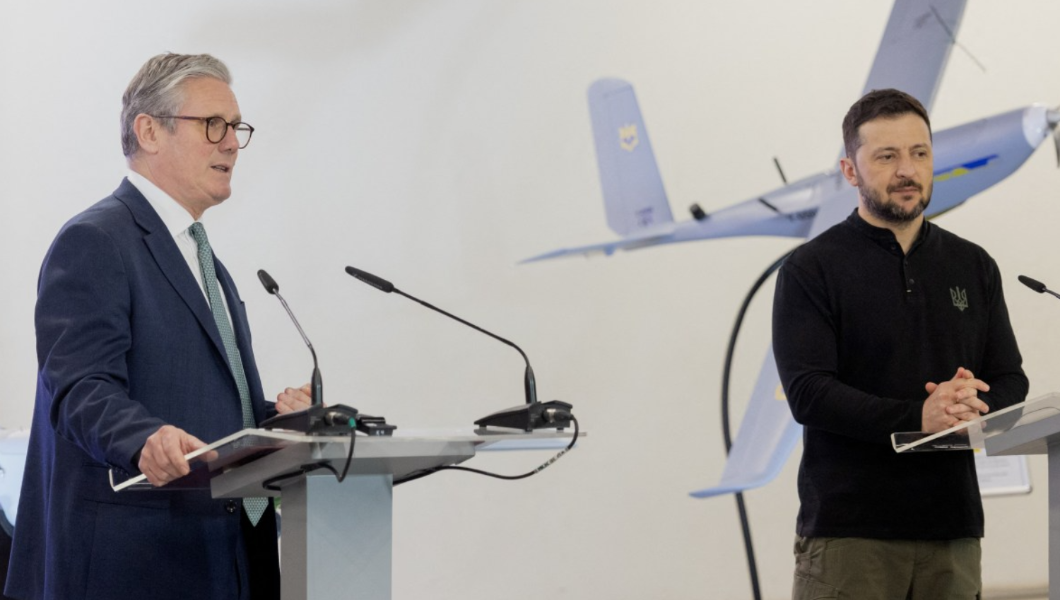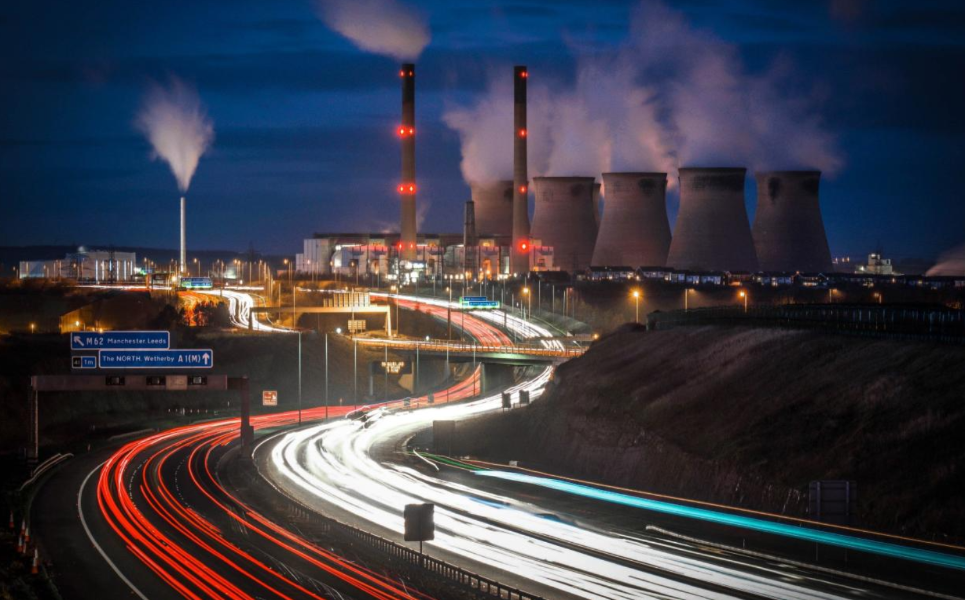-
Posts
10,694 -
Joined
-
Last visited
Content Type
Events
Forums
Downloads
Quizzes
Gallery
Blogs
Everything posted by Social Media
-
Pakistan’s latest and most expensive airport, New Gwadar International Airport, stands completed but unused, with no passengers and no planes in sight. The $240 million project, entirely financed by China, remains an enigma, as there is no clear indication of when it will become operational. Located in the coastal city of Gwadar, the airport was finished in October 2024, a striking contrast to the surrounding Balochistan province, which remains one of the country’s most impoverished and volatile regions. Over the past decade, China has invested heavily in Balochistan and Gwadar as part of the China-Pakistan Economic Corridor (CPEC), a multibillion-dollar initiative linking China’s western Xinjiang province to the Arabian Sea. Authorities have touted the project as transformational, yet signs of improvement in Gwadar remain minimal. The city still lacks a connection to the national power grid, relying on electricity from neighboring Iran and solar panels. Clean drinking water remains scarce. For a city of only 90,000 residents, an airport designed to accommodate 400,000 passengers annually seems far from a pressing need. “This airport is not for Pakistan or Gwadar,” said Azeem Khalid, an expert in Pakistan-China relations. “It is for China, so they can have secure access for their citizens to Gwadar and Balochistan.” Gwadar is a quiet but charming city, known for its friendly locals and beautiful beaches that see an influx of visitors during public holidays. However, many still perceive it as difficult or unsafe to visit. Currently, only one commercial flight route operates from Gwadar’s domestic airport, offering limited service to Karachi three times a week. There are no direct flights to Quetta, the provincial capital of Balochistan, or Islamabad, the national capital. The coastal highway, while scenic, has minimal facilities. For decades, the Baloch insurgency has cast a shadow over the region, with thousands reported missing—those who speak out against exploitation or injustice risk being detained on suspicions of ties to armed groups, according to locals. Activists claim forced disappearances and torture are common, though the government denies these allegations. Hashim, a resident of Gwadar, wants to see CPEC succeed and provide opportunities for young people. However, progress has been elusive. “When someone has something to eat, then why would he choose to go on the wrong path,” he said. “It is not a good thing to upset people.” Militant violence in Balochistan declined following a 2014 government counterinsurgency but saw a resurgence after 2021. Attacks have steadily increased since the Pakistani Taliban ended its ceasefire with the government in November 2022, emboldening groups like the outlawed Baloch Liberation Army. Security concerns delayed the airport’s inauguration, with officials fearing its mountainous surroundings could serve as a launching point for attacks. Instead of a grand opening, Pakistani Prime Minister Shehbaz Sharif and Chinese Premier Li Qiang hosted a virtual inauguration ceremony. The inaugural flight was kept closed to the public and media. Local frustration over the project has only grown. Abdul Ghafoor Hoth, district president of the Balochistan Awami Party, revealed that not a single resident of Gwadar was employed at the airport—“not even as a watchman.” For now, the gleaming new airport remains a symbol of unfulfilled promises, standing empty while the people of Gwadar continue to struggle with daily hardships. Based on a report by CNN 2025-02-26
-
Households across the UK are bracing for another increase in energy costs as the regulator Ofgem has announced that the energy price cap will rise by 6.4% from April. This means the average annual energy bill will climb to £1,849, a figure that has exceeded analysts’ predictions. The government and campaigners have called the hike “worrying” “You made a promise Energy Bills would come down” Now UK Energy prices set to rise by a whopping 6.4% come April. More business will go bust, more people will be broke & freezing. The repeated price hikes have led to widespread frustration, with campaign groups urging the government to step up support for struggling households. Simon Francis, coordinator of the End Fuel Poverty Coalition, emphasized the importance of targeted assistance, particularly for vulnerable consumers. “Ministers are right to be focused on improving the Warm Home Discount scheme and on energy debt, which continues at record levels because households have to find more even money to use the same amount of energy,” he said. Caroline Simpson, campaign manager at Warm This Winter, called the increase “devastating” and placed blame on energy companies profiting from the crisis. She argued that firms such as Centrica and Norwegian-owned Equinor, the UK’s largest gas supplier, are capitalizing on high prices while millions struggle. “It is therefore crucial that the government presses on with plans to fix this broken system and boost our energy security by rapidly increasing our supply of homegrown clean energy to free us from expensive gas and bring down bills for everyone for good,” she said. Tim Jarvis, Ofgem’s markets director general, acknowledged the difficulties consumers face, calling the rise “very unwelcome.” He explained that the regulator was forced to act due to substantial increases in wholesale gas prices. “This is further evidence, to be honest, that we need to move away from that reliance on international gas and start looking at domestically generated energy,” he told Sky News Breakfast presenter Wilfred Frost. Jarvis reiterated Ofgem’s full support for the government’s target to transition to clean power by 2030, calling the goal “realistic.” “It’s a big push. It’s one of the government’s missions. And so we are putting everything we can into it. We need to move away from being a price taker. And I think being able to rely on our own domestically generated, cleaner energy will mean that we’ll see much more stable prices in the future,” he stated. Looking ahead, Jarvis warned that predicting energy prices for the summer remains uncertain due to market volatility. “We often see quite minor things significantly changing prices because overall there is a shortage of supply on gas,” he said. “So we are hopeful. But it is very dangerous, I think, to make predictions.” As millions of households prepare for higher bills, the debate over the UK’s long-term energy strategy continues, with growing calls for a shift away from fossil fuels and towards more affordable, sustainable power sources. Based on a report by Sky News 2025-02-26
-

Pai's Big Bust: 7 Tourists Nabbed for Public Cannabis Use
Social Media replied to snoop1130's topic in Chiang Mai
Reminder of the topic: Pai's Big Bust: 7 Tourists Nabbed for Public Cannabis Use The crackdown led to the arrest of tourists from several countries: one from the UK, two from the Netherlands, one from the US, two from Spain, and one from Israel, according to a police spokesperson. -

Pai's Big Bust: 7 Tourists Nabbed for Public Cannabis Use
Social Media replied to snoop1130's topic in Chiang Mai
Off topic post removed @MalcolmB you've already had one Jew/Israeli trolling topic locked today. If you carry on the same rhetoric you will have some further time out to read the rules. 15. You will not discriminate or post slurs, degrading or overly negative comments on the basis of race, gender, age, religion, ethnicity, nationality, disability, medical history, marriage, civil partnership, pregnancy, maternity, paternity, gender identity, sexual orientation or any other irrelevant factor. -

Jewish tourists back down to Thais in road rage incident.
Social Media replied to MalcolmB's topic in ASEAN NOW Community Pub
//CLOSED// You know why @MalcolmB -
@SMIAI your post has been removed. 17. ASEAN NOW news team collects news articles from various recognised and reputable news sources. The articles may be consolidated from different sources and rewritten with AI assistance These news items are shared in our forums for members to stay informed and engaged. Our dedicated news team puts in the effort to deliver quality content, and we ask for your respect in return. Any disrespectful comments about our news articles or the content itself, such as calling it "clickbait" or “slow news day”, and criticising grammatical errors, will not be tolerated and appropriate action will be taken. Please note that republished articles may contain errors or opinions that do not reflect the views of ASEAN NOW. If you'd like to help us, and you see an error with an article, then please use the report function so that we can attend to it promptly.
-

Trump’s Proposal for Gazan Relocation makes perfect sense
Social Media replied to Social Media's topic in The War in Israel
@thaibeachlovers a post making numerous inflammatory and unsubstaniated claims has been removed. -
US President Donald Trump and French President Emmanuel Macron held a joint news conference on Monday following their bilateral meeting in the Oval Office. The two leaders also participated in a call with G7 summit leaders as part of ongoing discussions regarding the war in Ukraine. Macron’s visit to Washington coincided with the third anniversary of Russia’s full-scale invasion, a conflict that has seen Ukraine lose control of approximately 11% of its territory, according to an analysis by the Institute for the Study of War. Trump also stated that Russian President Vladimir Putin would be open to the deployment of European troops as peacekeepers in Ukraine. “Yeah, he will accept that. I’ve asked him that question,” Trump said. He explained that these forces would be responsible for ensuring that any agreement reached between the parties is properly implemented. “Troops may go into Ukraine as peacemakers, so when the agreement is done, they can watch that everything is followed properly. I don’t think that’s going to be a problem,” he said. Macron highlighted that he and Trump had made “substantive steps forward” in their discussions, emphasizing their shared goal of achieving peace while asserting that Ukraine must not be forced into surrender. “This peace must not mean a surrender of Ukraine. It must not mean a ceasefire without guarantees. This peace must allow for Ukrainian sovereignty and allow Ukraine to negotiate with other stakeholders,” Macron stated during the joint news conference. The French president also praised Trump for his engagement with Ukrainian President Volodymyr Zelensky, particularly regarding agreements related to rare earth minerals and critical resources. “The fact that there are Europeans that are ready to engage, to provide for these security guarantees, and now there’s a clear American message that the US as an ally is ready to provide that solidarity for that approach—that’s a turning point, in my view,” Macron said. He added that after speaking with Trump, he believed there was a viable path forward. Macron further stated that while both leaders agreed on the urgency of a resolution, he did not want to see a weak peace agreement. “We don’t want an agreement that is weak,” he said, adding that the discussions with Trump had marked significant progress. Trump, for his part, said he believed Macron agreed with him on many key issues, including that now is the right time to bring the war to an end. Based on a report by CNN 2025-02-25
-
Ireland is facing an unprecedented wave of unrest as anti-migrant sentiment reaches boiling point, fueled by a staggering near-300% increase in asylum applications over the past five years. Violent clashes, including knife fights, drug-fueled brawls, and destructive riots, have become disturbingly commonplace on the streets of Dublin, where authorities struggle to maintain order. Irish police have started an investigation after a video went viral of a man beating up a migrant who slammed the roof of his car on a street in Dublin Tensions erupted into full-scale riots last year when anti-immigration protesters torched cars, threw petrol bombs, and set fire to a former paint factory slated to house 550 asylum seekers. The site, located in Coolock, North Dublin, became a battleground as clashes between demonstrators and police unfolded throughout the day. Multiple fires were ignited, with dramatic images showing a digger engulfed in flames. Fifteen people were ultimately charged with public order offenses related to the violence. Public outrage intensified in November when MMA fighter Conor McGregor amplified anti-migrant rhetoric following unverified online reports that an Algerian migrant had stabbed three children outside a kindergarten. The former UFC champion declared, “Ireland is at war,” further inflaming tensions. The following month, an arson attack reduced a 19th-century Georgian country hotel in Galway to ruins. The Ross Lake House Hotel, which had been unoccupied for years, was scheduled to house 70 asylum seekers before it was set ablaze. The fire, which broke out just hours after protests outside the building, was condemned by government officials, with Dublin West’s Minister for Children, Equality, Disability, Integration, and Youth calling it a “disgraceful act.” Hostility toward migrants has also taken root in smaller communities across Ireland. In Newtown Mount Kennedy, Co. Wicklow, a former convent converted into a migrant holding center became the site of 24-hour protests that escalated into violent clashes with police. Meanwhile, people from Somalia, Sudan, and Nigeria have been placed in large tents on an estate cordoned off from the local population by a 10-foot-tall fence. The scene in Dublin’s Grand Canal offers a stark contrast to everyday life. While families relax along the waterway, police question migrants housed in tents along the footpath. Barriers continue to be erected to prevent further encampments, reinforcing the divide between asylum seekers and locals. The Irish Refugee Council has warned that the government is failing in its duty to provide shelter and safety. CEO Nick Henderson criticized the state’s approach, stating, “We can’t continue to normalise homelessness and have the State effectively delegate its duties to volunteers and under-resourced charities. It puts both people seeking protection and those helping them at risk of harm.” Ireland’s crisis has also sparked international debate. Last year, UK ministers flatly rejected Dublin’s request to take back asylum seekers who had crossed into Northern Ireland. The long-term outlook remains uncertain, with the Project Ireland 2040 initiative estimating that an additional two million people will reside in the country over the next 15 years, requiring £96 billion in infrastructure investment. However, migration numbers have already far outpaced projections, leaving policymakers scrambling to keep up. A study by the London School of Economics highlighted the role of social media in amplifying far-right rhetoric, blaming government cutbacks to anti-racism initiatives in the wake of the 2008 financial crisis for fostering an environment where hostility toward migrants has flourished. The report concluded, “More needs to be done to ensure already woefully neglected communities receive sufficient state resources to facilitate greater community integration of asylum seekers and migrants, allowing these communities to view immigration as beneficial, hence helping to tackle embedded racism.” As Ireland grapples with an escalating crisis, the question remains whether the government can balance humanitarian obligations with growing public unrest or if the country will continue down a path of deepening division and violence. Based on a report by Daily Mail 2025-02-24
-

Melania Trump Shines in Stylish Tuxedo at White House Gala
Social Media posted a topic in World News
Melania Trump made a striking return to the White House on Saturday night, captivating guests with her sophisticated style as she joined President Donald Trump for a formal gathering with the nation’s governors. Dressed in an elegant black and white tuxedo, the first lady’s ensemble complemented the president’s formal attire as they hosted the National Governors Association dinner in the East Room. During the evening, Donald Trump took a moment to acknowledge his wife’s efforts in preparing for the event. “She worked hard on making sure everything was very beautiful. She’s very good at that,” he said, expressing his appreciation for Melania’s eye for elegance. Melania’s attire featured a tailored pantsuit with a cummerbund, exuding a timeless and refined aesthetic. She opted to forgo a bowtie, leaving the top two buttons of her crisp white tuxedo shirt undone. The look was reminiscent of the outfit she wore for her official White House portrait, adding a touch of signature style to the night’s formal proceedings. Meanwhile, President Trump, dressed in a traditional tuxedo, engaged the room with his characteristic humor and speculation about the future of the presidency. “I have some suspicions but you never know,” he joked, suggesting that a future president might be among the governors in attendance. In a show of bipartisan outreach, Trump assured the assembled leaders that he was willing to collaborate across party lines to address the nation’s challenges. “My [phone] number, write it in your wallets and write it on your person, because I am open to anybody – Republican or Democrat. If we can help you, you’re going to call me up and we’ll take care of it,” he said, prompting laughter from the audience. He even added, “I’ll take maybe even the Democrat call first,” reinforcing his willingness to engage with both sides. Melania Trump’s presence at the event was particularly notable, as she had been largely absent from many of the high-profile visits by foreign leaders during the president’s initial weeks in office. The first lady had previously stated her plans to divide her time between Washington, New York City—where their son Barron is currently attending New York University—and South Florida. Earlier in the month, Melania made an announcement regarding the White House’s accessibility to the public. She revealed that tours of the residence, which had been halted in January due to the transition between the Biden and Trump administrations, were once again open to visitors. This decision was seen as part of her role in maintaining the historic connection between the White House and the American public. Her return to the White House on Saturday was not only a glamorous statement but also a reminder of her influence in shaping the administration’s events. The evening was a blend of formality and warmth, with Melania’s refined style and Trump’s candid remarks setting the tone for the gathering of state leaders. Based on a report by NYP 2025-02-24 -
Donald Trump has unleashed a fiery response to the latest book by journalist Michael Wolff, dismissing it as a "total FAKE JOB" after it made sensational claims about his presidential campaign. The book, which chronicles Trump's 2024 election efforts, features alleged quotes and incidents that the former president vehemently denies. Among the book’s many explosive assertions is one recounting a moment at a Pennsylvania rally where Tesla CEO Elon Musk reportedly jumped up and down in excitement. According to Wolff, Trump observed the tech billionaire’s behavior and allegedly remarked, "What the f*** is wrong with this guy? And why doesn't his shirt fit?" The book also claims Trump entertained conspiracy theories about Michelle Obama's gender, praised O.J. Simpson’s legal team, and harshly criticized his own lawyers. Despite Trump’s White House Communications Director Steven Cheung already branding Wolff as a "lying sack of s***," Trump took to Truth Social on Sunday night to personally address the allegations. "So-called 'Author' Michael Wolff's new book is a total FAKE JOB, just like the other JUNK he wrote," Trump stated, referencing Wolff’s previous works about his presidency. He insisted he had never entertained Wolff’s attempts to arrange a meeting, rejecting all contact to avoid granting the author any credibility. "Others in the administration were also called, they reported his calls, and likewise, did not talk to him," he added. Trump admitted that Wolff might have spoken to a small number of individuals but argued that their contributions were not significant. Trump further asserted that Wolff’s prior books about him had been discredited and expected this one to suffer the same fate. "I am one who believes in commenting about FAKE NEWS, or made-up stories, even if you have to 'punch low,' and shouldn't be wasting the time required to do so," he declared. The former president then pivoted to listing his recent successes, claiming he had overseen the greatest election and "perhaps the greatest first month EVER." He accused Wolff of exclusively focusing on negative and allegedly false narratives surrounding his presidency. "He mentions the people that surrounded me during the Election, and in many cases now, in derogatory terms, but they couldn't have been that bad because here I am in the White House, refusing to take his calls," Trump argued. Dismissing the book’s credibility, Trump accused Wolff of fabricating sources. "If they are real, let them be revealed. Watch, it will never happen. He is FAKE NEWS, a total LOSER, and no one should waste their time or money in buying this boring and obviously fictitious book!" he concluded. The book, titled All or Nothing: How Trump Recaptured America, recounts Musk’s rally appearance as an attempt to solidify his commitment to Trump’s campaign. However, after Musk's energetic display, Trump was reportedly left questioning his behavior. Meanwhile, Wolff alleges that Musk himself was unimpressed by campaign figures, reportedly dismissing an introduction to J.D. Vance at the same rally by saying, "I've really no interest in speaking to a vice president." Trump staffers allegedly speculated that Musk and Trump’s relationship was doomed to fail. Wolff also claims Trump repeatedly discussed conspiracy theories regarding Michelle Obama, particularly amid speculation that she could replace Joe Biden as the Democratic candidate. "People call her 'Mike' you know. You know that, don't you?" Wolff attributes to Trump. "They think she looks pretty manly. Those very big shoulders. What's that about? That's what people will call her if she runs, 'Mike.' That's the name she'll have: 'Mike.'" The book further alleges Trump was highly critical of his legal team while simultaneously praising the legal defense assembled for O.J. Simpson. Wolff claims Trump was particularly ruthless toward his lawyers following his hush money trial conviction in New York. He reportedly berated Todd Blanche, now Deputy Attorney General, saying, "I don't even know what you're doing here? I told you to stop this... I paid you to handle this. But you're blowing it... Why are you so weak? I don't know why I'm paying you." Trump also allegedly lashed out at other lawyers, including acting U.S. Deputy Attorney General Emil Bove, questioning their courtroom performances. "How could you lose that? You were terrible. Now I get stuck with you." In response to the book, White House Communications Director Steven Cheung issued a scathing statement to DailyMail.com, branding Wolff as a fraud. "Michael Wolff is a lying sack of s**** and has been proven to be a fraud. He routinely fabricates stories originating from his sick and warped imagination, only possible because he has a severe and debilitating case of Trump Derangement Syndrome that has rotted his peanut-sized brain." In the lead-up to the election, Wolff has also speculated about Musk’s political maneuvers, writing for DailyMail.com that some believed Musk was positioning himself to undermine Trump. The book claims that Musk’s support for Trump was dependent on Trump selecting J.D. Vance, whose political career has been backed by tech industry money, as his running mate. "Curiously, there is a belief that it is not so much Trump who the tech bros are supporting but his Vice President J.D. Vance, whose career has been nurtured by tech money. Musk is said to have made his support for Trump contingent on Trump picking Vance, who is only 40 years old, as his running mate," Wolff alleges. As Trump and his allies push back on Wolff’s latest book, the controversy surrounding All or Nothing: How Trump Recaptured America continues to fuel headlines, adding another chapter to the ongoing political drama. Based on a report by Daily Mail 2025-02-25
-
Prime Minister Sir Keir Starmer has echoed former U.S. President Donald Trump’s stance that the UK and Europe must take greater responsibility for their own defence. Speaking at the Scottish Labour conference in Glasgow, Starmer acknowledged the growing instability in Europe and committed to ensuring Britain plays a leading role in protecting the continent. “Instability in Europe always washes up on our shores,” he stated. “And this is a generational moment. I've been saying for some time that we Europeans—including the United Kingdom—have to do more for our defence and security. The US is right about that.” Starmer emphasized that the UK can no longer “cling to the comforts of the past” and that it is time to take full responsibility for security. His comments align with Trump’s recent assertion that European NATO members should contribute more to their own defence, allowing the United States to scale back its financial commitments. Trump's remarks triggered an emergency meeting among European leaders, highlighting the urgency of the issue. Currently, the UK spends 2.3% of its GDP on defence, but Starmer has committed to increasing this to 2.5%. However, he has yet to specify a timeline for achieving this target. Speculation suggests that he may unveil the details during his upcoming visit to Washington, D.C., where he is scheduled to meet with Trump on Thursday. This announcement was initially expected to be part of a broader defence spending review in the spring. Starmer also reaffirmed the UK’s commitment to supporting Ukraine in its ongoing war with Russia. He suggested that Britain would be prepared to send troops as part of a future peacekeeping force following a potential peace agreement. His remarks, however, sparked controversy among European allies. Germany and Italy cautioned that it was premature to discuss deploying troops, while France signaled agreement with the UK’s position. “As we enter a new phase in this conflict, we must now deepen our solidarity even further,” Starmer said. “There can be no discussion about Ukraine without Ukraine. And the people of Ukraine must have long-term security.” With rising tensions in Europe and ongoing debates about NATO’s role, Starmer’s alignment with Trump’s view on defence spending signals a shift in the UK’s strategic priorities. As he prepares to meet with Trump in Washington, the world will be watching to see if the UK formally commits to a new level of defence investment. Based on a report by Sky News 2025-02-25
-
Democrats are finding it difficult to reverse the rightward shift among Latino voters, a trend that was evident in November’s election when former President Donald Trump made significant gains with the demographic that was once seen as a stronghold for the party. While the majority of Latino voters cast their ballots for Vice President Kamala Harris, Trump’s support among them rose by approximately eight points between 2020 and 2024, according to AP VoteCast. The shift was even more pronounced among Latino men, who moved towards Trump by double digits, despite his controversial stance on immigration and deportation policies. “The Biden campaign and then, by connection, the Kamala Harris campaign, had a lot of work to do with all of the groups, but I was surprised that so many Latino men were so disillusioned with Joe Biden and what happened in the last four years that they were willing to go to Donald Trump even with all of the crazy, xenophobic anti-immigrant rhetoric,” said Democratic political strategist Maria Cardona. In 2016, when Trump won his first term, he secured just 28 percent of the Latino vote, according to the Pew Research Center. That number grew to around 35 percent in 2020 and surged to 43 percent in 2024, contributing to his re-election. The shift reflects a broader rightward movement across multiple states and demographic groups, demonstrating how Democrats have been gradually losing ground with a bloc that overwhelmingly supported Barack Obama over Mitt Romney in 2012 by a staggering 71 percent to 27 percent, according to the Pew Hispanic Center. Trump’s success among Latino voters was largely attributed to his economic messaging. “Trump did a fantastic job at messaging,” Cardona said. “A lot of it was misinformation, lies and conspiracy theories that, frankly, a lot of people believed. But at the end of the day, they believed that Trump was going to give them the economy that they had at the beginning of Trump’s [first] term.” Meanwhile, the impact of Trump’s immigration policies on Latino voters may have been overstated. Traditionally, it was believed that a candidate advocating for immigration policies detrimental to Latino communities would lose significant support. However, Melissa Michelson, a professor of political science at Menlo College, explained, “I think we’ve all now updated our understanding of how Latino voters make their vote choice decisions.” The Trump campaign effectively linked immigration to economic concerns, claiming that immigrants were taking “Black jobs” and “Hispanic jobs” or that immigration was exacerbating the housing crisis. This narrative resonated with some Latino voters. “That likely led some Latino voters to buy into the idea that ‘maybe things would be a little bit better if we didn’t have as many immigrants around,’” said Gabriel Sanchez, a senior fellow at the Brookings Institution. Democrats, meanwhile, struggled to counter Trump’s economic messaging in a way that specifically addressed Latino concerns. “If Latino voters are saying election after election, ‘focus on the economy,’ … and Democrats really didn’t ever have that messaging especially directed towards Latinos specifically, I think that’s really been the backdrop where immigration permeated a bit back,” Sanchez said. Another factor in Trump’s rising Latino support is that many Latinos do not necessarily identify with the immigrant communities he has targeted. “The idea being: If we can reduce immigration, then maybe Americans will see Latinos who are already here as less likely to be suspected of being here without documentation,” Michelson explained. Maritza Miranda Saenz, a strategist and former executive director of Maricopa County Democrats in Arizona, expressed concern over Democrats’ failure to adequately address their slipping numbers with Latino voters. “I don’t think they’re concerned enough,” Saenz said. “Democrats just are not scared yet … but that should be the top of every single conversation.” In Arizona, one of the states with the highest percentage of Hispanic and Latino residents, Democrats have long hoped that the Latino voting bloc would turn out in larger numbers. “And in the meantime, they have ignored that voting bloc,” Saenz said. Trump also gained support among Latina women, rising from 32 percent in 2020 to 39 percent in 2024, according to AP VoteCast. The shift among Latino men was even more dramatic, with support climbing 10 percentage points to 48 percent. However, some Democrats see an opportunity to reclaim support among Latino women, particularly through education policy. Rep. Adriano Espaillat (D-N.Y.), chair of the Congressional Hispanic Caucus, believes that Trump’s actions regarding federal education programs could become a major political liability for him. “I know that the big fight will be education,” Espaillat said. “If he messes with moms, he’s going to face a lot of trouble, because moms don’t take it. They go out and they fight for their kids. So when you see that happen, when he reaches out to cut programs like Title I, which is the kids that are schools that have a significant number of kids under the poverty level, Title II for English language learners, or Title III, more training for teachers, moms are going to get upset. I think moms are going to put him in his place.” Democratic strategist Mike Madrid, co-founder of the Lincoln Project and author of The Latino Century: How America’s Largest Minority Is Transforming Democracy, pointed out that Trump’s aggressive immigration policies could also backfire. Since returning to office, Trump’s administration has launched a wave of immigration enforcement actions, including ICE raids, and even released a controversial video appearing to mock deportees. “The risk of Latinos coming back to a more traditional voting pattern of supporting Democrats is very high if Republicans overplay their hand that way,” Madrid said. Despite Latino voters prioritizing economic issues, Cardona emphasized that Trump’s policies are now having tangible consequences. “A lot of Latinos … are having buyer’s remorse,” she said. “When Democrats were trying to make the case to the Latinos who were leaning towards Trump during the election, we would bring up the mass deportation stuff. They didn’t believe that he would do that. Even though they had people in their family that were mixed status, they did not believe.” Based on a report by The Hill 2025-02-25
-
In 2008, Israeli Prime Minister Ehud Olmert presented a proposal to Palestinian leader Mahmoud Abbas that he believed could have been the foundation for lasting peace in the Middle East. Urging Abbas to sign the deal, Olmert stressed its significance. "In the next 50 years, you will not find one Israeli leader that will propose to you what I propose to you now. Sign it! Sign it and let's change history!" The proposal outlined a two-state solution, a vision that seems increasingly unattainable today. Under Olmert’s plan, a Palestinian state would have been established on more than 94% of the occupied West Bank. He had drawn up a map, which has since taken on near-mythical status, with various interpretations circulating over the years. Until now, Olmert had never shared this map with the media. In "Israel and the Palestinians: The Road to 7th October", a new documentary series by Norma Percy, Olmert finally reveals the map he claims he showed Abbas during their meeting in Jerusalem on September 16, 2008. "This is the first time that I expose this map to the media," Olmert says in the film. The map detailed the 4.9% of the West Bank that Olmert proposed to annex to Israel, which included major Jewish settlement blocs—similar to past proposals dating back to the late 1990s. In return, Israel would have ceded an equal amount of Israeli territory along the borders of the West Bank and Gaza Strip. The two Palestinian territories would have been connected via a tunnel or highway, an idea that had been previously discussed. According to Olmert, Abbas took the proposal seriously. "He said: 'Prime minister, this is very serious. It is very, very, very serious.'" The plan also sought to address one of the most contentious issues of the conflict: Jerusalem. Under Olmert’s proposal, both Israelis and Palestinians could claim parts of the city as their capital. Administration of the "holy basin," including the Old City with its significant religious sites, would be entrusted to a committee comprising Israel, Palestine, Saudi Arabia, Jordan, and the United States. The implications of Olmert’s plan for Jewish settlements were enormous. It would have required the evacuation of dozens of communities scattered throughout the West Bank and Jordan Valley. The Israeli right had already seen the 2005 forced evacuation of Jewish settlers from Gaza under Prime Minister Ariel Sharon as a traumatic event. Evacuating most of the West Bank would have been an even greater challenge, with the potential for violence. However, the plan was never tested. At the end of their meeting, Olmert refused to give Abbas a copy of the map unless he agreed to sign it on the spot. Abbas declined, explaining that he needed to consult his experts to fully understand what was being offered. Olmert and Abbas agreed to reconvene with their respective map experts the following day, with both men believing they were on the verge of a historic breakthrough. That meeting never took place. As Abbas and his team left Jerusalem that night, his chief of staff, Rafiq Husseini, recalled the mood in the car. "Of course, we laughed," he said in the documentary. The Palestinians believed the plan was doomed. Olmert, facing an unrelated corruption scandal, had already announced his resignation. "It is unfortunate that Olmert, regardless of how nice he was… was a lame duck," Husseini said, "and therefore, we will go nowhere with this." Complicating matters further, tensions in Gaza escalated. After months of rocket attacks from the Hamas-controlled territory, Olmert ordered a large-scale Israeli offensive, Operation Cast Lead, in late December, leading to three weeks of intense fighting. Looking back, Olmert maintains that Abbas should have signed the deal. "It would have been very smart," he said. "Then, if a future Israeli prime minister tried to cancel it, he could have said to the world that the failure was Israel's fault." Just a few months later, Israeli elections brought Benjamin Netanyahu to power. A staunch opponent of Palestinian statehood, Netanyahu’s leadership marked the end of any discussion of Olmert’s plan. The map, along with the proposal, faded into obscurity. Olmert still waits for Abbas’s reply, but his plan is now just another in a long list of missed opportunities to end the Israeli-Palestinian conflict. In 1973, Israeli diplomat Abba Eban remarked that Palestinians "never miss an opportunity to miss an opportunity," a phrase that has been echoed by Israeli officials ever since. But the reality is more complex. Since the historic 1993 Oslo Accords, moments of hope have repeatedly been overshadowed by tragedy and political shifts. The pattern of near-agreements followed by failure is not unique to Olmert’s proposal. In January 2001, Israeli and Palestinian negotiators meeting in Taba, Egypt, believed they had outlined the foundation of a Palestinian state. A Palestinian delegate even sketched a rough map on a napkin, signaling the progress they had made. But violence on the ground, particularly the Second Intifada that erupted months earlier, rendered the talks meaningless. Political transition in Israel also played a role—Prime Minister Ehud Barak had already resigned, and Ariel Sharon won the upcoming election decisively. Just like Olmert’s map, the napkin from Taba became a symbol of what might have been. Based on a report by BBC 2025-02-25
- 1 reply
-
- 3
-

-

-

-
Germany’s, Friedrich Merz, has called for greater independence from the United States while casting doubt on the future of NATO. In his first speech following his party’s victory in the German elections, the conservative CDU leader also took aim at U.S. President Donald Trump, criticizing the administration's stance on Europe. Merz, who will begin coalition negotiations on Monday, spoke candidly about his vision for a more autonomous Europe, expressing frustration with Washington's involvement in the German election campaign. "For me, the absolute priority will be to strengthen Europe as quickly as possible so that we can achieve real independence from the USA step by step," he declared on Sunday. He likened U.S. interference in German politics to external pressures from Russia, calling it "ultimately outrageous." His remarks come in response to statements made by Trump, whose "America First" policies have raised concerns across Europe about the stability of transatlantic relations. "I never thought I would have to say something like this on a television program. But after Donald Trump's statements last week at the latest, it is clear that the Americans, at least this part of the Americans, this administration, are largely indifferent to the fate of Europe," Merz said. The conservative leader also questioned NATO’s long-term viability as Europe grapples with shifting geopolitical dynamics. “I am very curious to see how we are heading toward the NATO summit at the end of June. Whether we will still be talking about NATO in its current form or whether we will have to establish an independent European defense capability much more quickly," he stated. Merz’s rise to power comes at a challenging time for Germany, with its economy struggling, social tensions over migration intensifying, and security concerns growing amid increasing friction between the U.S., Russia, and China. The 69-year-old, who has never held public office, now faces the difficult task of forming a stable government in a fractured political landscape. The far-right Alternative for Germany (AfD) party surged to a historic second-place finish with 20.8% of the vote, while Merz’s CDU/CSU bloc secured 28.6%, making them the largest party but without an outright majority. The election also saw the collapse of Chancellor Olaf Scholz's three-party coalition, leaving Germany’s political future uncertain. Despite the AfD’s strong showing, mainstream parties refuse to collaborate with the party, which is under surveillance by German security services due to suspected extremism. The AfD has, however, gained endorsements from figures such as U.S. billionaire Elon Musk. As a result, Merz is likely to seek an alliance with Scholz’s Social Democrats (SPD), though negotiations are expected to be prolonged and contentious. Unlike previous coalition-building efforts, Merz will not need support from the Greens to secure a majority. The newly formed BSW party, led by former Left Party leader Sahra Wagenknecht, fell just short of the 5% threshold required to enter the Bundestag, slightly simplifying the CDU leader’s path to forming a government. As Germany stands at a political crossroads, Merz's calls for European self-reliance signal a potential shift in Germany’s foreign policy. His stance on NATO and relations with Washington will likely shape the country's role on the global stage for years to come. Based on a report by The Independent 2025-02-25
-
A horrifying incident in Lacey, Washington, when a 17-year-old girl was attacked by her parents in an attempted honor killing. The shocking event, captured on police bodycam footage, occurred outside Timberline High School, where the girl had sought refuge after fleeing home. After Ihsan’s arrest, Zahraa and Haneen continued to argue with police, demanding to speak with him. Haneen insisted, "He (Ihsan) didn’t do..." before being cut off. As tensions escalated, officers warned her to calm down or risk arrest. Eventually, Zahraa was allowed to speak to Ihsan through the police car window. The details of their conversation were not recorded. In the days following the attack, police learned that Zahraa had also allegedly tried to strangle her daughter. She remained free for four days before being detained by customs officers while attempting to cross into Canada on October 22. Zahraa was arrested on a domestic assault warrant and taken into custody at the Whatcom County Jail before being transferred to Lacey Police. According to Victor Barnes, the father of the girl’s boyfriend, Zahraa fled after prosecutors moved to charge her alongside Ihsan. She reportedly took her two youngest children, ages five and three, into Canada and left them with an uncle before attempting to cross the border again. Barnes also recounted how Zahraa had allegedly tried to kidnap his son from Timberline High School weeks before the attack. He claimed CCTV footage showed her grabbing the teen and attempting to drag him away, but he managed to pull free. Following this incident, the school warned Zahraa that she would be trespassing if she returned. After learning about his daughter's relationship, Ihsan pulled her out of school, smashed her phone, and booked flights to Iraq. Barnes said, "They wanted to seclude her, and during this period of time, that's when he was threatening to kill her and was starving her." The girl told police about ongoing abuse, including mistreatment of her autistic brother. On the day of the attack, she sought help from her boyfriend’s teacher after arriving at school looking malnourished. Although officials found a safe place for her to go, she was left to find her own transportation. As she and her boyfriend walked to the bus stop, Ihsan confronted them, yelling in Arabic. A student who spoke Arabic responded, "She doesn't want to go back with you. Leave her alone." Ihsan allegedly lost control, punching the girl's boyfriend in the face and sending him "flying onto the concrete." The girl was then placed in a headlock by her father. "It's not right… you are not supposed to do this," she told police he said as he tried to strangle her. Her boyfriend and other students desperately intervened, with her boyfriend punching Ihsan in the head until he released her. Zahraa then allegedly joined the attack, also attempting to choke her daughter, but was overpowered by the students. The girl managed to flee inside, screaming, "My dad was trying to kill me!" The boyfriend suffered a boxer's fracture in his hand while trying to rescue her. The girl was taken to Providence St. Peter Hospital, where doctors observed scratches on her neck and signs of strangulation. Court documents stated that she "believed she lost consciousness three to four times during the incident" and woke up with dirt pressed into her face. "She thought she was going to die." Initially, Ihsan was not charged with attempted murder and was released on October 24 on a $150,000 bond. Zahraa, however, was charged with attempted murder and held on a $500,000 bail. It wasn’t until November 5—nearly two weeks later—that attempted murder was added to Ihsan’s charges. He was re-arrested, and his bail was raised to $1 million, keeping him in jail. Barnes described the emotional toll on his son, who witnessed his girlfriend nearly being murdered. "He's just trying to keep it together... trying to not feel so tensed up all the time." The girl remains in hiding, fearing further harm from her family. Authorities continue to investigate the case while ensuring the girl's safety. Based on a report by Daily Mail 2025-02-25
-
The number of deaths linked to weight-loss and diabetes medications such as Ozempic and Mounjaro has risen to 82 in the UK, according to newly released figures from the Medicines and Healthcare products Regulatory Agency (MHRA). This growing toll has sparked fresh concerns regarding the safety of these increasingly popular injections. According to the data, 22 individuals died after using these drugs for weight loss, while 60 fatalities were associated with their use in treating type 2 diabetes. Alison Cave, the chief safety officer at the MHRA, emphasized the importance of careful medical oversight, stating, “The decision to start, continue or stop treatments should be made jointly by patients and their doctor, based on full consideration of benefits and risks.” The popularity of these medications has surged, with approximately 500,000 Britons currently using them. Many individuals have reported significant weight loss, with some shedding up to 22.5% of their body weight within 18 months. In response to this trend, the NHS is preparing to offer Mounjaro to severely obese patients. Wegovy, a higher-dose version of Ozempic initially designed to treat diabetes, was introduced to the NHS in September last year. However, access remains restricted to specialist weight-loss clinics in certain parts of England. Around 4.1 million people qualify for Wegovy under NHS guidelines, which require a body mass index (BMI) over 35 along with associated health conditions. Meanwhile, the private sector allows access to those with a BMI of 30 or above, making the treatment available to approximately 15 million adults. The latest MHRA figures indicate that 18 deaths were directly linked to Mounjaro, while 29 were associated with the use of Ozempic, Rybelsus, or Wegovy, all of which contain the active ingredient semaglutide. An additional 35 fatalities were linked to Saxenda and Victoza, which contain liraglutide. Among the reported cases is Susan McGowan, a 58-year-old Scottish nurse who passed away last year after taking two low-dose injections of Mounjaro over a two-week period. Investigations have also uncovered nearly 400 hospital admissions related to the use of weight-loss drugs. The NHS has issued a warning on its website, advising against taking anti-obesity medications unless they have been prescribed by a medical professional. “Never take an anti-obesity medicine if it has not been prescribed to you. These types of medicines may not be safe for you and can cause serious side effects,” the advisory states. Despite safety concerns, semaglutide has been widely regarded as a breakthrough drug. Studies suggest it may not only aid weight loss but also reduce alcohol cravings and slow markers of aging. Research involving two million participants has linked the medication to improved heart health, a reduced risk of infections, lower rates of drug abuse, and fewer cases of dementia. Lilly UK, the company behind Mounjaro, reaffirmed its commitment to patient safety, stating, “Lilly is committed to continually monitoring, evaluating, and reporting safety data.” The manufacturer emphasized that ensuring the well-being of patients remains its “top priority.” Based on a report by The Times 2025-02-24
-
The British government has not ruled out the possibility of Russia rejoining the G7, as Security Minister Dan Jarvis praised former U.S. President Donald Trump for initiating negotiations with Russian President Vladimir Putin. Jarvis also expressed doubts about Ukraine’s ability to win the war, signaling a shift in tone as Britain and its allies seek to influence U.S. policy on the conflict. As Britain intensifies its efforts to prevent the U.S. from withdrawing support for Ukraine, Jarvis aligned with Trump’s view that Russia’s global isolation could come to an end through peace negotiations. Britain is set to announce a new package of sanctions on Monday aimed at increasing pressure on Russia while discussions on ending the war continue. However, following Trump’s recent remarks that it had been a “mistake” to remove Russia from the G8 after its 2014 annexation of Crimea, Jarvis suggested that Putin’s return could be reconsidered in the future. When asked if Russia should be allowed back into the G7, Jarvis told *Times Radio*, “That will be a matter to be discussed with international allies. And that is a matter that no doubt will be considered at the point at which the conflict in Ukraine has been concluded.” He further stated that Prime Minister Sir Keir Starmer would be addressing these issues during his upcoming meeting with Trump, as part of a strategic effort to encourage Russia to end the war. Pressed on whether Starmer would discuss re-admitting Russia into the G7, Jarvis responded, “There’ll be a range of conversations taking place with international allies. And the prime minister will be discussing, I’m sure, a range of matters relating to Russia and Ukraine.” Starmer and French President Emmanuel Macron have agreed to present a united front on Ukraine when they meet Trump separately this week, emphasizing what they see as a critical moment in global security. Starmer is scheduled to meet Trump in Washington on Thursday, following Macron’s own discussions with the former U.S. president on Monday. Diplomatic sources indicated that both leaders would attempt to dissuade Trump from pursuing unilateral peace talks with Moscow in exchange for stronger European security commitments to Ukraine. In marking the third anniversary of Russia’s invasion, the UK government is set to tighten its sanctions by banning senior Russian politicians, officials, and business leaders from entering Britain. The Home Office announced that all local and federal ministers, along with top executives of major Russian companies, would be barred from traveling to the UK in an effort to exert pressure on Russia’s elite. These measures build on existing sanctions that have already seen high-profile figures such as Roman Abramovich and Oleg Deripaska banned from the country. Starmer is also expected to discuss the situation with G7 leaders in an upcoming call. However, government sources have downplayed speculation that he will commit to increasing defense spending to 2.5% of GDP before his meeting with Trump. UK military officials have warned the prime minister that defense spending must rise to at least 2.65% of GDP just to maintain current military capabilities, urging an even higher target of 3%. Education Secretary Bridget Phillipson, speaking on foreign policy, was careful not to criticize Trump for his negotiations with Putin. She acknowledged that engaging with Russia is necessary for peace but stressed that any settlement must include Ukraine. “It will require negotiation with the Russians through part of the settlement, so I do think that is the right approach,” she said. She added, “President Trump has brought the Russians to the table, but any lasting settlement when it comes to peace does require Ukrainian voices, President Zelensky’s voice, to be a part of that. There can be no settlement unless we have a negotiation involving both Russia and Ukraine.” Based on a report by The Times 2025-02-25
-
New procurement guidelines from the government have advised businesses to align with net zero and diversity objectives if they wish to secure public contracts. However, critics argue that these policies prioritize ideology over economic efficiency, calling them examples of "eco-zealotry" and "woke virtue signaling." The recently published guide encourages firms bidding for government work to demonstrate their contributions to Sir Keir Starmer’s “five missions” and their commitment to delivering “social value.” Companies are expected to outline how they will enhance “community cohesion,” eliminate barriers for underrepresented groups and young people, and support the transition to net zero when executing government projects. Additionally, businesses must show efforts toward “creating opportunities in areas of deprivation” and upholding the “highest standards” of “environmental sustainability.” The updated National Procurement Policy Statement replaces a previous guide developed under the Conservative government as part of the Procurement Act 2023. Unlike the new guidelines, the prior version did not reference net zero and discouraged excessive diversity reporting requirements for companies competing for public contracts. The new directive also encourages government departments to allocate more resources to charities and NGOs in an effort to enhance "social value." Critics argue that these changes undermine financial prudence. Sir Jacob Rees-Mogg, former business secretary, remarked, “The intention of the Procurement Act 2023 was to maximize value for money for taxpayers. When the public finances are under such strain, trying to use it for woke virtue signaling is especially foolish and potentially unlawful.” Echoing these concerns, Andrew Bowie, shadow Scottish secretary, criticized the move, stating, “It seems this government is more concerned with their eco-zealotry than delivering value for money for the taxpayer. By enforcing these mad targets on companies, the British public will face higher bills and worse services—just to fuel Ed Miliband’s own ego and ideology. After their disastrous Budget, the Government should be prioritizing value for money over eco-zealotry rather than taking another step in the wrong direction and lumbering costs on taxpayers.” Lord Kempsell, founder of the anti-waste organization UK DOGE, warned that the new procurement rules could lead to unnecessary red tape, potentially delaying essential projects. “It may be well-intentioned, but this kind of overly bureaucratic layering will slow down vital procurement and just backfire. It shows why we need UK DOGE right now—the crack team is ready to go, Labour should call us at once.” The Conservative government had reformed procurement in 2023 through the Procurement Act, aiming to simplify and increase transparency in the process. The introduction of these new guidelines, however, has reignited debate over whether government contracting should focus on broader social and environmental objectives or remain strictly centered on financial efficiency and value for taxpayers. Based on a report by Daily Telegraph 2025-02-25
-

The Unwavering Support for Hamas: A Moral Blind Spot
Social Media replied to Social Media's topic in World News
Before this veers off again lets please keep this on topic so posts can remain and a constructive discussion on the OP had. -

The Unwavering Support for Hamas: A Moral Blind Spot
Social Media replied to Social Media's topic in World News
Please read the OP to discuss the topic. Once you've done that, please discuss the topic, not the same historical or unrelated subjects that just hijacks the discussion, there are plenty of other general Hamas/Israel war topics. Any further posts off topic will be removed: The Unwavering Support for Hamas: A Moral Blind Spot -

The Unwavering Support for Hamas: A Moral Blind Spot
Social Media replied to Social Media's topic in World News
@SMIAI second post removed from you. Make it a third and you will also be removed -

The Unwavering Support for Hamas: A Moral Blind Spot
Social Media replied to Social Media's topic in World News
@MalcolmB false and inflammatory claims have been removed. -

Israelis in Thailand Urged to Uphold Respectful Conduct
Social Media replied to webfact's topic in Thailand News
@MalcolmB As expected you've now had two posts removed already for unverified claims. 15. You will not discriminate or post slurs, degrading or overly negative comments on the basis of race, gender, age, religion, ethnicity, nationality, disability, medical history, marriage, civil partnership, pregnancy, maternity, paternity, gender identity, sexual orientation or any other irrelevant factor. -
The horrifying scenes emerging from Gaza have done little to deter the unwavering support Hamas continues to receive in the West. How difficult should it be to condemn a group responsible for the brutal murder of a baby and a toddler—strangling them, mutilating their bodies with rocks to stage an airstrike, and then parading their remains in locked coffins, surrounded by cheering crowds, with propaganda material stuffed around them? Apparently, very difficult. The Prime Minister, despite his position, managed only a carefully worded response, saying he was “deeply saddened” by the deaths. His statement, however, notably avoided naming the perpetrators or outright condemning their barbaric actions. Yes, there really are people who are just plain evil. Every person who has ever chanted “from the river to the sea” should immediately denounce Hamas and apologize for being an accessory to pure wickedness Amnesty International followed a predictable pattern, stating that “Hamas’s release of bodies of four Israeli hostages” was “a heartbreaking reminder of the urgent need to immediately release all civilian hostages and Palestinians arbitrarily detained.” The organisation’s ability to craft a statement that turns the murder of children into a broader political plea against Israel demonstrates the dark art of false equivalence, where lawful incarceration of jihadist murderers is equated with the slaughter of innocents. The United Nations' position was no less troubling. Rather than unequivocally condemning Hamas, UN Special Rapporteur Francesca Albanese chose the day the bodies were returned to urge Spain to block American arms shipments to Israel. This reluctance to speak out against Hamas is not confined to the realm of international diplomacy or human rights organisations. It is also present in our own communities. Many reading this will likely know friends, colleagues, or acquaintances who have been outspoken about Palestinian suffering but have remained eerily silent when it comes to the grotesque slaughter of Jewish children and the desecration of their corpses. One of the most troubling aspects of this silence is the lack of condemnation from within British Islamic communities. In a discussion last week, a Muslim friend despaired in a text message, asking, “Which Imam in Britain called [Hamas] out?” Where, indeed, is the true moral voice of Islam in Britain? Where are the "not in my name" petitions? With Britain’s Muslim population growing, moderate voices must be a source of hope. Yet they are often subjected to intimidation and immense social pressure, making them far fewer in number than one might expect. A poll conducted last March found that 46% of British Muslims sympathise with Hamas—a figure identical to the percentage who believe that Jews wield too much power over government policy. If the atrocities of October 7 taught us anything, it is that ignoring a problem does not make it disappear. Eventually, the enemy will find a way through the fence, and then it will be too late. It is imperative to support those who uphold our shared values while confronting and rejecting the quiet endorsement of Hamas, so easily recognised in the silence of its sympathisers. Based on a report by Daily Telegraph 2025-02-24


